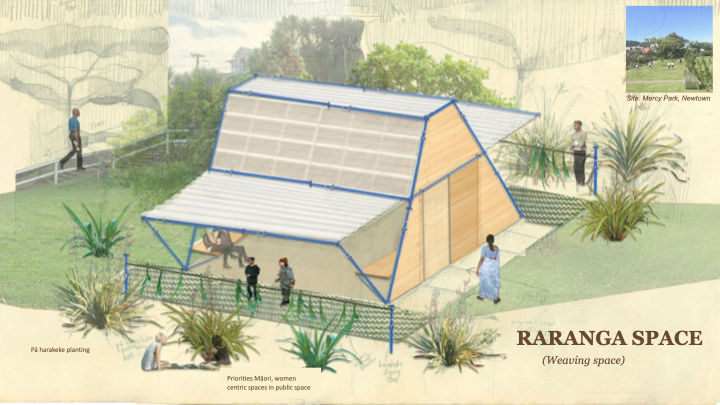Anna Michels Portfolio
Catering to Social Amenity in Response to Urban Intensification in Pōneke
Date: 2023
First presented: As part of a summer research scholarship
Accepted for: AMPS Livable Cities Conference New York 2023

Abstract
In the face of the climate crisis, many countries are intensifying cities in a bid to reduce urban sprawl and minimise carbon production. In Aotearoa New Zealand we are observing similar trends, with many new-built homes having smaller living spaces and private outdoor areas. Aotearoa is a small, colonised country, where the legacy of 20th century suburban backyard sections impacts cultural expectations of how people socialise and spend time outdoors.
As our major cities intensify, it is critical that the public amenities grow alongside to off-set reduction in private space whilst also reclaiming cultural narratives and honoring Te Tiriti o Waitangi. These new public spaces need to recognise the social and cultural shift that they facilitate.
This paper presents an interdisciplinary design research project that explores how industrial design and urban design combine to create solutions that better meet the needs of communities in Pōneke Wellington (NZ).
The project analyzes the shifting built and social environments of Wellington, and proposes new possibilities for industrial design interventions that support and foster a cultural shift toward social inhabitation of urban spaces. The project is a provocation for rethinking the social potential of public space, exemplifying an approach centring the cultural and social needs of users and communities in order to enrich and transform urban environments.
Underpinned by indigenous knowledge and values (Tikanga Māori), the research promotes ‘manaakitanga’ or generous hospitality, and aims to develop inclusive, accessible, culturally responsive, and generous social spaces supporting a transition to a more livable, lower carbon city.



